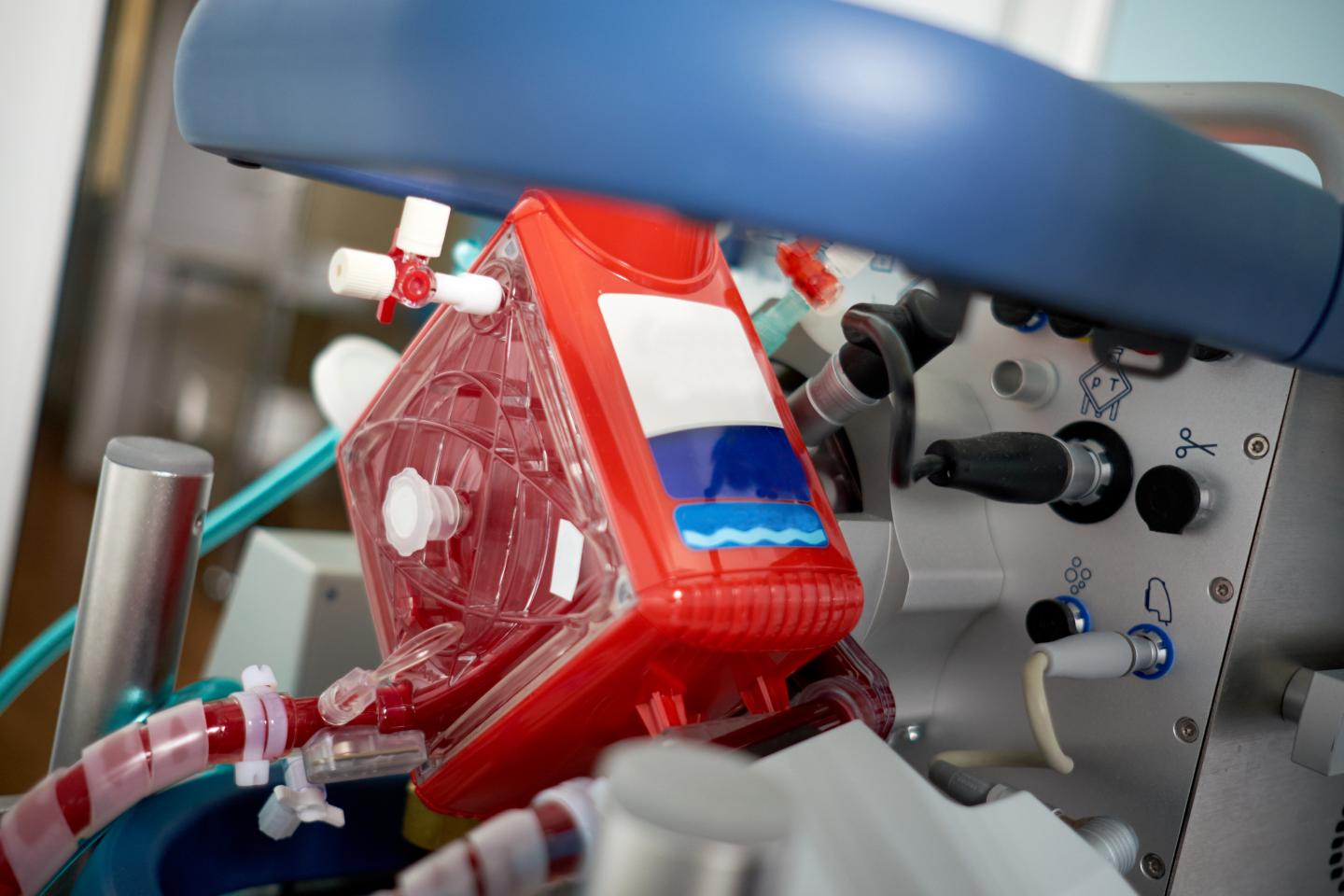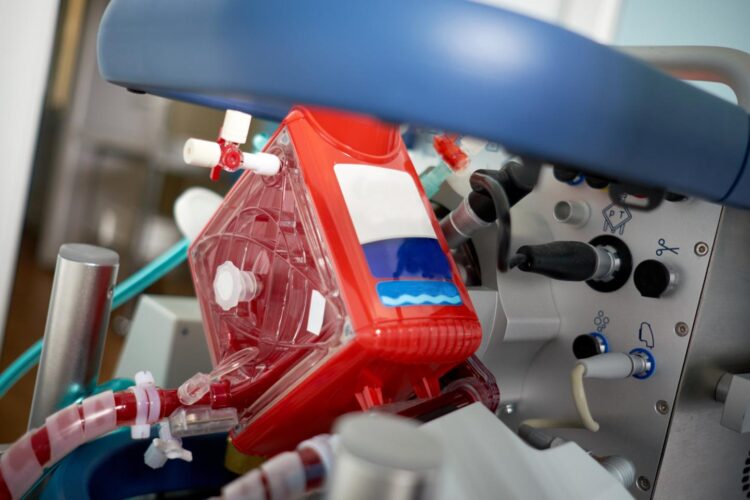
Credit: ATS
April 15, 2020 – Rapidly escalating numbers of COVID-19 patients suffering from respiratory failure threaten to overwhelm hospital capacity and force healthcare providers into making challenging decisions about the care they provide. Of particular interest is the role of ECMO – extracorporeal membrane oxygenation, a form of life support for patients with advanced lung disease – to support critically ill patients in the current pandemic.
In “ECMO Resource Planning in the Setting of a Pandemic Respiratory Illness,” an open-access paper published in the Annals of the American Thoracic Society, ECMO physicians outline their approach for care.
Currently, there is no vaccine or treatment for COVID-19 beyond supportive care such as mechanical ventilation or, in severe cases, ECMO to maintain patients and provide a window for potential recovery. However, when demand far outpaces a hospital’s ability to provide highly specialized, resource-intensive therapies such as ECMO, physicians must be prepared to determine when and if to offer such support.
“The key challenge in pandemic settings is to optimize resource utilization so that patients are appropriately triaged and cared for within a hospital and throughout the larger health care system,” said Steven Keller, MD, PhD, senior author and ECMO physician in the Division of Pulmonary and Critical Care Medicine, Brigham and Women’s Hospital. “This is a daunting task as it requires a level of planning and coordination not routine in our current system and is difficult to implement within a limited window for planning and without dedicated resources.”
“However, achieving this coordination is vital to ensuring that patients who are likely to benefit most from ECMO, younger patients with severe respiratory failure but without other significant co-morbidities or evidence of multi-organ failure, are able to receive the support that will offer them the best opportunity for survival.”
Dr. Keller and his co-author suggest the following guidelines to help medical centers respond to patients’ needs as resources contract in the COVID-19 pandemic:
- Mild Surge – Focus on increasing capacity:
- o Develop criteria specific to pandemic for initiation and cessation of ECMO.
o Obtain necessary equipment and expand capacity.
o Collocate/regionalize ECMO patients.
o Implement staffing protocols that allow for ECMO specialists/RNs to care for more patients based on acuity
o Collaborate with other local/regional ECMO centers.
- Moderate Surge – Transition focus to determine allocation of scarce resources
- Major Surge – Limit or defer use of scarce resources.
“Planning for how to deploy these resources in advance will both optimize care for patients initiated on ECMO support as well as provide guidance for clinicians caring for patients in whom ECMO support is not an option in a resource-limited environment,” said Dr. Keller.
To read the authors’ perspective piece in its entirety, and to see the full collection of COVID-19 manuscripts in the ATS library, go here.
###
Media Contact
Dacia Morris
[email protected]





